Women and Girls in Science
ATHENA European University strives for gender equality, inclusion and balance in STEM disciplines and science in general by clearly acknowledging such issues in our program and addressing them within our daily activities.
Although the global community has made a lot of effort to inspire and engage women and girls in science, they continue to be excluded or deficiently participated in science in many parts of the world. A significant gender gap has persisted throughout the years at all levels of science, technology, engineering, arts, and mathematics (STEAM) disciplines worldwide. Therefore, it is essential to mark international days addressing gender equality to educate the public, address global problems, and celebrate achievements.
Starting with International Day of Women and Girls in Science (February 11, 2023) over International Women’s Day (March 8, 2023) to International Girls in ICT Day (April 27, 2023) and International Women in Engineering Day (June 23, 2023), ATHENA will celebrate women and girls scientists by publishing interviews with them.
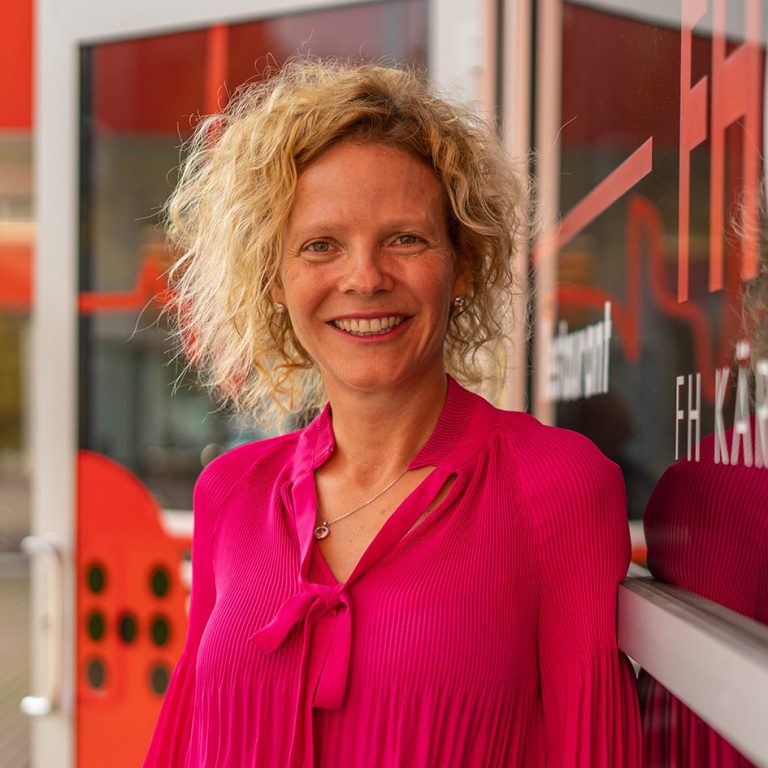
Anita Kloss-Brandstätter
Professor for Mathematics, Carinthia University of Applied Sciences
What is your research area, and why did you choose it?
My research is in the field of clinical data science. As a biologist with a PhD, technical mathematician and habilitated human geneticist, I build bridges between clinical research, mathematical algorithms and statistical analysis. My research is based on data collected in health care settings. Clinical data science contributes to improving healthcare, diagnosis and therapy of future patients.
What has been the most exciting moment in your career?
Every time data science helps to find a new association between risk factors and a particular disease, it is an inspiring and motivating experience for me. Every scientific discovery in basic research can lead to earlier and more precise diagnoses, expanded therapy options and improved prognoses for the course of disease. In the sense of personalised medicine, clinical data science provides essential decision-making bases for the optimised treatment of future patients.
Have you faced any advantages as a woman in science?
In my scientific career, I have been awarded the Dr. Maria Schaumayer Prize three times. This prize for outstanding scientific work is only awarded to women. Winning the Dr. Maria Schaumayer Prize three times was a particularly nice tribute to my scientific work.
Have you faced any disadvantages as a woman in science?
Unfortunately, I have to answer this question in the affirmative. During and after my dissertation, I was a victim of scientific abuse. This was confirmed and, to my relief, subsequently investigated by an independent commission of experts. This brought to light that several young women in the same setting were victims of scientific abuse and male abuse of power. This experience motivates me all the more today to fight for an environment in which young women can flourish in science and receive support.
Do you think it is important for women to be involved in science, and if so, why?
It is essential that women be integrated into the scientific community, where they can contribute to the progress of society as a whole according to their skills and competences. Half of the world’s population is female, and women should be represented in the same proportion in such an exciting and important professional world as science. There is no reason to exclude or discourage women from the world of science, to use them there only for auxiliary services or not to foster them.
What would you recommend to girls and women considering a career in science?
Working as a scientist is exciting, challenging, fulfilling, sometimes frustrating, but always rewarding. In science, you can usually develop completely freely according to your interests, and that is a wonderful experience. No two working days are the same, every day brings new challenges, new ideas, new insights, new feelings of success. Working with other scientists is incredibly fun, and in science, teamwork is a key to success. If you are curious, enjoy taking on new challenges, have a high frustration tolerance level and want to find a mission in your job, then you are in good hands in science. This is true for people of any gender. So my advice is: follow your heart when choosing a career, and look for an environment for your education that supports you in the best possible way and where you can feel comfortable. The Carinthia University of Applied Sciences can offer such an environment. Then I can recommend every girl to pursue a career in science.
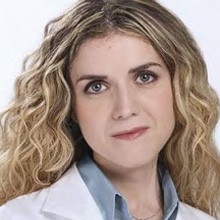
Ilaria Cacciotti
Full Professor, University of Cusano, Italy
What is your research area, and why did you choose it?
My research area is Materials Science and Technology. I chose this sector since I consider it a cross field, fundamental in all scientific areas.
What has been the most exciting moment in your career?
I could cite different exciting moments. Probably the most exciting was when I won the L’OREAL-UNESCO Women For Science Award, particularly since in that moment I was working without a remuneration, and it was unexpected.
Have you faced any advantages as a woman in science?
NO
Have you faced any disadvantages as a woman in science?
For the women it is very difficult to manage both the work and the family, but it is true in every sector and not only in science.
Do you think it is important for women to be involved in science, and if so, why?
It is important to involve both women and men in science. Important contributions can come from anyone who wants to engage in a scientific field.
What would you recommend to girls and women considering a career in science?
I would recommend them to always follow their interests and ambitions, without precluding anything and without being influenced by the common opinions about the involvement of women in science.
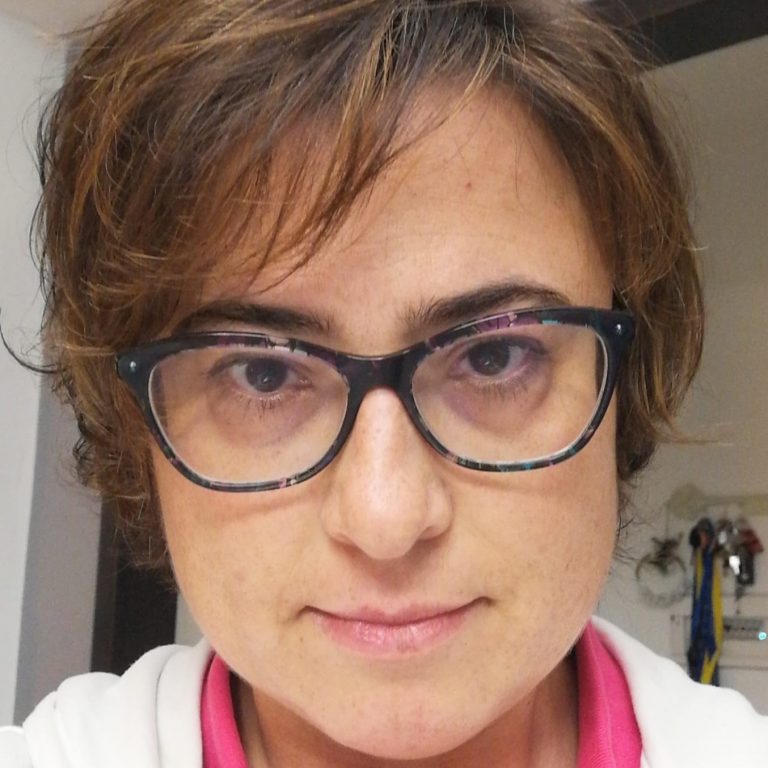
Silvia Di Francesco
Associate Professor, University of Cusano, Italy
What is your research area, and why did you choose it?
My research area regards the mitigation of hydraulic risk with a particular attention to computational aspect. I chose this important theme during my phD studies. I have been always fascinated from hydraulic modeling issues, especially those related to free surface flows and river basin management.
What has been the most exciting moment in your career?
The best exciting moment was my research period experience abroad.
Have you faced any advantages as a woman in science?
Not yet.
Have you faced any disadvantages as a woman in science?
During my career I faced many difficulties, all related to available time. In fact, an important aspect is the right time to dedicate to research and family. As a woman and mom, it was not too simple to manage in optimum way both. It seems that, in such a way, for a woman is necessary to prove and demonstrate to be always efficient, adequate.
Do you think it is important for women to be involved in science, and if so, why?
I do think that it is important both for women and men to be involved in science. There is no reason to make a distinction in genre, only in motivation and skills. The help to women and families has to be further promoted in the context of society and welfare, giving in this way the free choice to women of “when “where” and “how much” work.
What would you recommend to girls and women considering a career in science?
I really hope that girls could be able to follow their vocations, without fear of an unsuccess. At the same time, they have to preserve their personal and family interest.
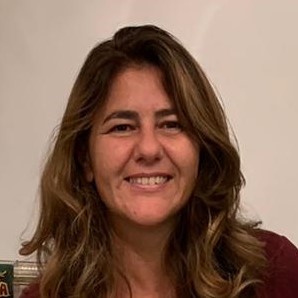
Barbara Ferracuti
Associate Professor, University of Cusano, Italy
What is your research area, and why did you choose it?
My research area is structural engineering in the civil sector and I choose it because I was interested in the design of new constructions and at the same time in enhancing the safety of the existing buildings mitigating the risk with respect to seismic events.
What has been the most exciting moment in your career?
When you think of the most exciting moment, it is natural to think about the achievement of a specific recognition, such as becoming a professor. However, the most exciting moment in my career is connected to the young researchers that work with me: their first original idea, their first publication, etc. In those moments I know I’m doing a good job.
Have you faced any advantages as a woman in science?
No, I did not face any advantages.
Have you faced any disadvantages as a woman in science?
Yes, I faced some disadvantages. At the beginning of my career, there were few women in my sector. I remember when in a research lab, someone told me that I was too pretty to stay in the lab because the technicians could be distracted by my presence. Now I’m happy to say that the way of thinking of most people in science has significantly changed, but the gender gap still exists. The second disadvantage is the difficulty in managing family and work,whicht is still hard for a woman with respect to a man.
Do you think it is important for women to be involved in science, and if so, why?
Yes, it is very important to have both male and female attitudes, but above all, it is important to show to other women that science is not a male prerogative.
What would you recommend to girls and women considering a career in science?
I recommend to believe in themselves and in their abilities.
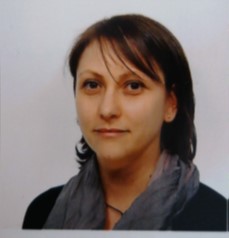
Marianna Gallo
Assistant Professor, University of Cusano, Italy
What is your research area, and why did you choose it?
My research area is food engineering. My interest started with my master degree thesis, during which I did my research in a food company.
What has been the most exciting moment in your career?
During my career, the most exciting moment was when I see that by the results of my phd thesis was born a new commercial product.
Have you faced any advantages as a woman in science?
I believe that there are no advantages of being a woman.
Have you faced any disadvantages as a woman in science?
Several disadvantages arise from being a woman, chief among them the absences that result from maternity periods, absences that affect career.
Do you think it is important for women to be involved in science, and if so, why?
I think the advantages that women can bring to the world of science are practical sense and discipline.
What would you recommend to girls and women considering a career in science?
I would advise not to be discouraged by the difficulties of managing one’s personal and work life and to follow one’s passions.
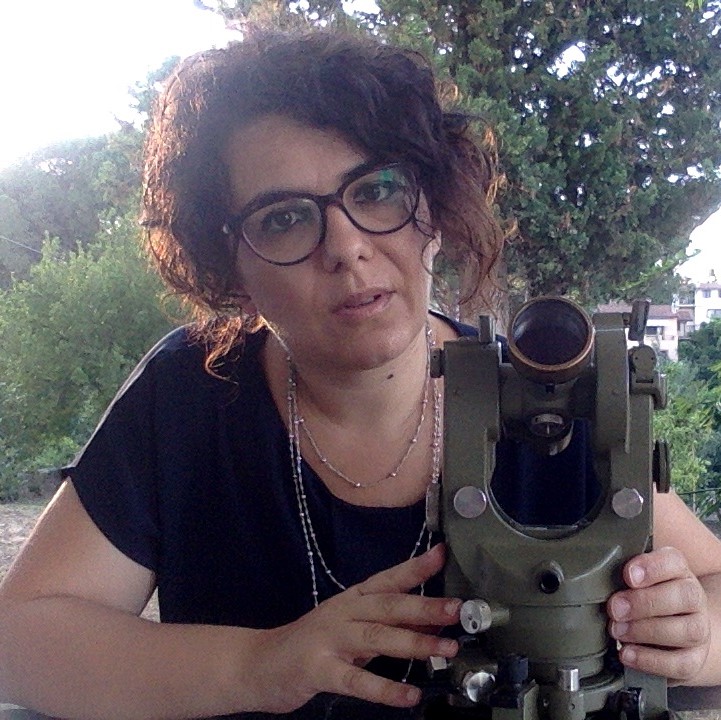
Francesca Giannone
Associate Professor, University of Cusano, Italy
What is your research area, and why did you choose it?
My research area is topography, with a focus on satellite photogrammetry and remote sensing. I first became familiar with this research field during my degree thesis, and it became the main topic of my PhD studies.
What has been the most exciting moment in your career?
The most exciting moment in my career was when I started studying for my doctorate; it was the first important decision that became the first step for my future career.
Have you faced any advantages as a woman in science?
No, I simply want to have the same opportunities as other colleagues.
Have you faced any disadvantages as a woman in science?
There have been many critical moments, but the worst time is when I am forced to choose between work or personal problems; I often feel that I do not have time for everything, that I do not have a real choice.
Do you think it is important for women to be involved in science, and if so, why?
In my opinion, there is no answer to this question; the involvement of all people who work ethically is important, whether they are men or women.
What would you recommend to girls and women considering a career in science?
I would like to advise them always to follow their personal passions, interests and ambitions and, at the same time, create synergies with colleagues; collaboration and sharing critical moments or successes is a key step in one’s career.
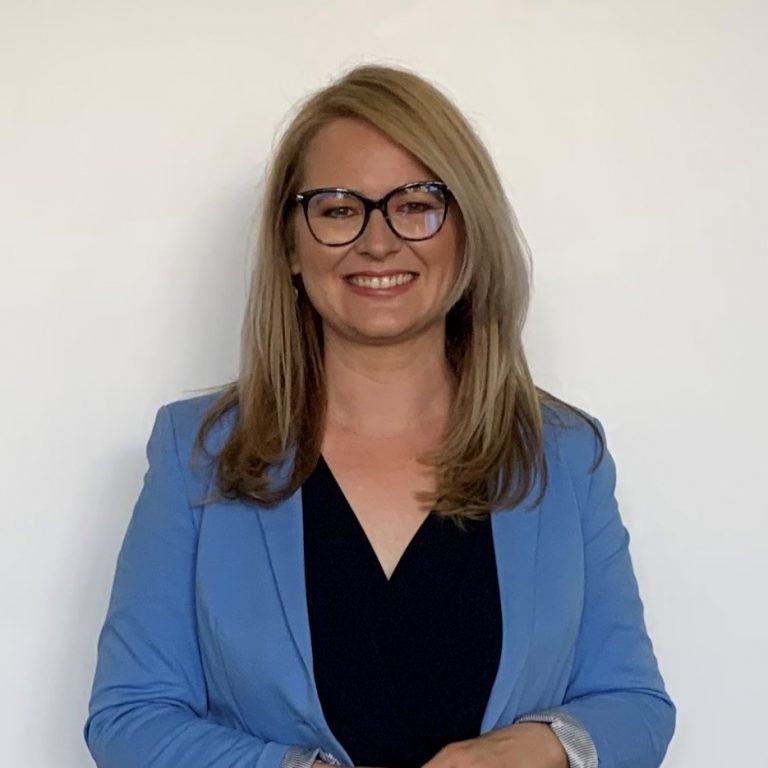
Jerneja Herzog
PhD, associate professor of special didactics in the field of fine arts at the Faculty of Education, University of Maribor, Slovenia.
Jerneja Herzog, PhD, is an associate professor of special didactics in the field of fine arts at the Faculty of Education, University of Maribor. As a visiting professor, she has lectured at many universities abroad. She is the author and co-author of numerous scientific and professional articles and monographs. She coordinated several projects. For her achievements in 2019, she received the Rector’s Award for Outstanding Scientific Research and Pedagogical Achievements. In the same year, she received the state honorary Valvasor Award as the coordinator of the project group for research work in the field of blind and partially sighted. Her research interests include the field of artistic creativity and artistic abilities at various stages of development of children, pupils and high school students, artistic appreciation, contemporary fine arts in various curricula, and bringing art and cultural heritage closer to vulnerable groups. She is a reviewer in many reputable foreign journals and a technical editor of the Journal of Elementary Education.
What is your research area, and why did you choose it?
My research area is special didactics in the field of fine arts. During my undergraduate studies, I observed the artistic creativity of eleven-year-old pupils. The research I conducted at that time was highly complex, as I tested more than 300 children and methodically processed more than 7,200 pieces of data. I was so captivated by the research approach in this unexplored field that I started to think about what I could find out in such an extensive study. I realised that I was even more drawn to the background in my direct educational work, i.e., to the question of what these visible results of children’s artistic expression mean from a scientific point of view. I continued my studies towards a Master of Science in Pedagogy. I had the opportunity to familiarise myself with the methodological upgrading of research data analysis in the form of seminars I conducted as part of my thesis. During this time, I completed an internship at a primary school, passed a professional exam in education and got a job as a teaching assistant for didactics in the field of fine arts. As an assistant, I got to know both pedagogical and scientific work, especially scientific publications. And that’s when I realised that this is an area and a way of working that interests me.
What has been the most exciting moment in your career?
I could not pick out a single one. It seems to me that the path of a scientist is so gradual, building up slowly so that ultimate success often depends on small achievements. Indeed, a critical turning point was successfully completing a PhD and, later, obtaining any scientific title. Of course, intermediate goals are also important, such as the successful publication of scientific articles, the acquisition of projects, and the successful supervision of masters and PhD students. It inspires me when I look back at the results achieved, at the insights into some of the personality traits I have developed over the course of my career, and above all (more and more frequently lately) at the fact that I see myself successfully passing on my knowledge to younger colleagues and students.
Have you faced any advantages as a woman in science?
In my research, I have also spent much time analysing gender differences regarding boys’ and girls’ creativity and discovering the differences. So this analytical approach from a gender perspective is also very close to my heart and interesting to me. When I transfer my research results to the area you are asking me about, the research results are confirmed by my personality. Indeed, as a woman, I have approached challenges in a more structured way, following instructions and considering all possible solutions and obstacles that might arise. This was a significant advantage. Maintaining contact and a personal approach with colleagues is also beneficial, which I can sustain and establish more easily, at least as a woman.
Have you faced any disadvantages as a woman in science?
I cannot say that I have had a negative experience because I am a woman. I was often called a “good girl”; that is, not clever, but good. Today I find that funny, but at that time, I was so angry that I wanted to prove in every way that I was not only good but also had other abilities and talents.
Do you think it is important for women to be involved in science, and if so, why?
Of course, it is very important for me that women participate in science and have equal rights. We can complement each other very well, shape each other and contribute to better results with our skills and diversity. Recognising the strengths and weaknesses of each individual, regardless of gender, is critical to working together constructively to achieve common goals. That is why women need to help shape, co-decide and co-create science together with their male colleagues.
What would you recommend to girls and women considering a career in science?
Science is not a profession; it is a way of life. If you do not feel a sense of belonging, desire or motivation, think again before taking this path. Results in science require hard work, sacrifice and constant research. Questions and dilemmas often arise throughout the day, regardless of what you do, whether in the office or on a well-deserved holiday, at the seaside or preparing lunch. I cannot imagine not loving and enjoying what I do because it keeps me so busy and inspired. That’s why it’s important to love what you do and feel like you belong. You will never give up when all that is given, no matter how big the challenges and obstacles may be.
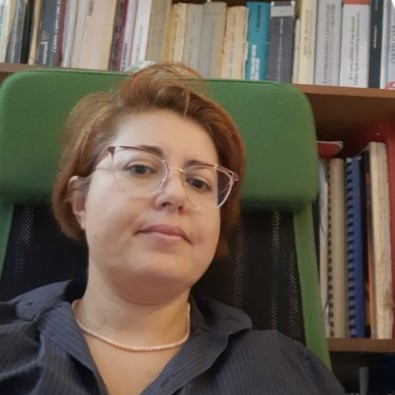
Stefania Imperatore
Assistant Professor, University of Cusano, Italy
What is your research area, and why did you choose it?
My research area is Structural Engineering, a sector that I loved since I was a child.
What has been the most exciting moment in your career?
When I was rewarded as an experienced researcher.
Have you faced any advantages as a woman in science?
No, I didn’t.
Have you faced any disadvantages as a woman in science?
In some cases, it is more difficult to balance work and family when the researcher has very young children.
Do you think it is important for women to be involved in science, and if so, why?
Yes, it is because in their life, women are typically characterised by a more multitasking and multithreading approach (in addition to better optimisation of time and activities), and these specificities can be very profitable in scientific research activities.
What would you recommend to girls and women considering a career in science?
I would recommend optimising her family organisation.
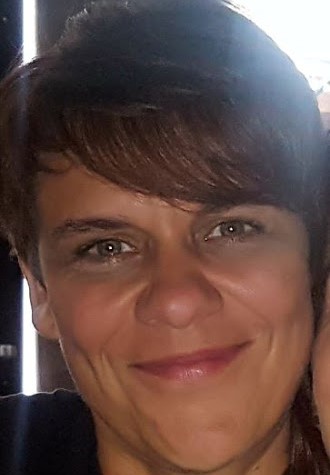
Koutra Kleio
Assistant Professor, Hellenic Mediterranean University, Greece
Dr Koutra Kleio is Assistant Professor at the Department of Social Work, Faculty of Health Sciences at the Hellenic Mediterranean University. She obtained a first degree in Social Work, holds an MPH and a PhD from the Faculty of Medicine, at the University of Crete. Her PhD dissertation investigates the effect of social capital on health behaviors in high school students in Crete. Her main research interest is promoting health and social services from the user services person-centered, social capital and community development approach. She is a member of the research laboratory of Social Research and Social Work and also of the educational laboratory of Local Community Development. She has been teaching to the undergraduate and postgraduate program of Social Work and she is a guest speaker to the Master of Public Health, Medical Department, the University of Crete and the University of Western Attica.
What is your research area, and why did you choose it?
My research area is Social Work in Public Health. Mainly my research interests are focused on community development, gender based violence, immigration and social integration, social capital, health risk behaviors, and health promotion. I choose this area as encapsulates both small and large communities. I can work within neighborhoods, small rural areas, with city governments or on regional scale. To prevent wide-scale health risk behaviors of deprived population groups, to actively promote preventive measures, and educational programs promoting healthy practices. But mainly because I can advocate for equity in health and social care, so that low-income and marginalized populations (elder, immigrant, women, youth) have access to the same health and social care resources. Generally speaking is a field with a lot of potential to make a lot of positive change in the world. Also, it’s a profession of second chances!!!
What has been the most exciting moment in your career?
The most exciting moment in my career was my selection to the first group of students in the master’s program on Public Health at the University of Crete. For more than 5 years, I was searching for a master’s program abroad but due to several reasons, and mainly because of a lack of resources, at the very last minute, my plan was collapsing. When I first saw the program announcement, I thought that I will not send an application. I did not trust myself, I thought that I was not so good to join the medical school master’s program, and I was afraid of failure. At the same, I knew that the competition will be high with more than 90 applicants. A lot of people encourage me, I study a lot for the written exams and give myself a chance to participate. Finally, the program selected 20 candidates and I was the 21st. I knew it was really hard. After a week they call me and announced that one of the candidates did not accept her position. That was it, I was in the group. I was the last candidate by accident, by a second chance. After 20 years, I am still so grateful because of this opportunity. A person -whom I do not want to name-change my professional life and not only. This is the same person who supervised my master’s and Ph.D. thesis. A unique feminist man that had a great vision for the primary healthcare system in Greece, was the one that open the door for another world. I remember back then during my master’s thesis, I was studying immigrants’ mother access to the healthcare system and at the same time, I organized an intervention and searched for solutions to their problems. So my supervisor told me“ Kleio focus on the research, you will not save the world”. I replied to him “For me, immigrant mothers are not just numbers for a research paper but humans with uncovered needs”. Finally, I accomplished both tasks research and intervention. I work with him for more than 6 years on my PhD thesis. I choose him. I intentionally work with a good person that supported my growth. He allowed me to get in these circles.
Have you faced any advantages as a woman in science?
In my field, women make up the majority of professional social workers, as in more care professions. Women constitute a significant majority of the profession itself and at the same time women also account for a large proportion of clients seeking social work assistance. So the client base matches the gendered profile of the profession, and social work often entails women working with women to address significant stresses.
Additional advantage is that social workers usually excel in the soft skills of human development. It’s a career based on social interaction, caring, communication and other such “soft skills” that are relationship survival tools for women.
Have you faced any disadvantages as a woman in science?
Although social work are more than 70% women, the majority of leading positions as presidents, chairs and managers are actually men. Men social workers often get promoted into managerial positions. Beyond this main structural disadvantage, unfortunately social work profession itself has often been viewed as an extension of women’s traditional unpaid caring roles and that negatively effect on our profession as a science in terms of professional and academic status, pay rates and management structures.
Do you think it is important for women to be involved in science, and if so, why?
Of course it is important for women to be involved in science for a myriad of reasons such as: women in science work as a model of success for other women, acknowledge issues of gender and power, facilitate social change, challenge traditional stereotypes, support women’s right to self- determination, recognize women’s needs, combat gender inequalities and support equity for women.
What would you recommend to girls and women considering a career in science?
I would recommend to other women considering a career to : Build a supportive network; Surround themselves with supportive mentors, peers, and friends who believe in them; to join clubs, organizations, or groups that will help them connect with others in their field; to work hard and with your soul, to love every single moment of your career steps; to be polite but do not afraid to promote themselves, do not be sky in communicating their dedication and needs with respect to others needs, and view challenges as opportunities to learn.
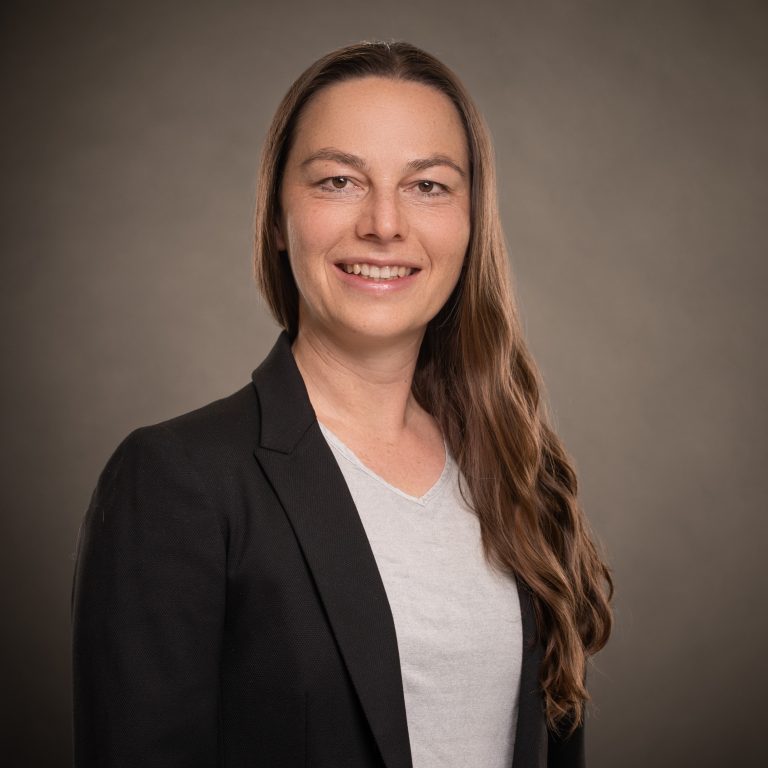
Sybille Krauß
PhD, professor of Human Biology and Neurobiology at the University of Siegen, Germany.
Sybille Krauß is professor of human biology and neurobiology at the University of Siegen. She leads a research group that focusses on aberrant RNA-protein interactions in neurodegenerative diseases. She authored and co-authored numerous original research papers and review articles. She is a reviewer and editor in different reputable journals.
What is your research area, and why did you choose it?
I am studying deregulated RNA-protein interactions that lead to cellular dysfunction in neurodegenerative diseases. I chose an academic career, because I love to face the challenge of solving unsolved problems. Especially by pursuing a career in research on incurable diseases, I feel that I can make a difference in people’s lives, whether through clarifying how these diseases progress, or identifying new ways of disease-intervention.
What has been the most exciting moment in your career?
One of the most exciting moments in my career was, when I started my own lab and begun my independent scientific work.
Have you faced any advantages as a woman in science?
This is hard to tell, not that I know.
Have you faced any disadvantages as a woman in science?
At present, less than 30% of researchers worldwide are women. Long-standing biases and gender stereotypes are discouraging women from natural sciences (including RNA research). Personally, I heard discriminatory comments several times during my career, but I learned to ignore it and continue to go for my goals.
Do you think it is important for women to be involved in science, and if so, why?
Everyone, who pushes the scientific field forward is important. We should use our energy to solve scientific problems, not for discriminating people.
What would you recommend to girls and women considering a career in science?
Never give up.
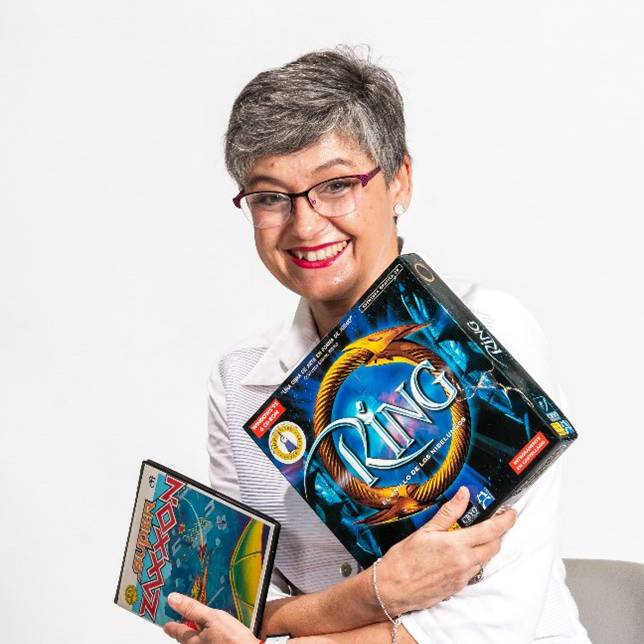
Beatriz Legerén Lago
Beatriz Legerén Lago. (Vigo, Spain, 1964). PhD in Audiovisual Communication. Her line of research work focuses on the field of Games Studies. Specifically in the design – rules, mechanics, technology and narration – of interactive entertainment products and their use as work tools beyond playful use. As well as in the design of Transmedia Narratives.
Director for more than 20 years of the first interactive agency in Galicia, Interacción, where the first video game project in the Galician community was designed and developed. Throughout her professional career she has held various positions in professional associations both in the Audiovisual and in the ICT sector, president of Eganet, President of the Cluster of ICT companies in Galicia, Member of the Strategic and Management Committee of the ICT Cluster of Galicia, Member of the Strategic Committee of the Galician Audiovisual Cluster.
She currently coordinates the Research Group “Video Games- Narrative, Persuasion and Creativity”, she´s a founding member of the Spanish chapter of Digra (Digital Games Research Association), and is also part of the Icon 14 Scientific Association and the Alfás Group (Ambientes Lúdicos Favorecedores de Aprendizaje)
What is your research area, and why did you choose it?
Videogames and Interactive Narrative, from a Social Science point of view. My thesis was about videogames and interactive television but from a business model perspective. I always felt curiosity on how to design a complex object like a videogame, how to design them more persuasively and how useful they can be as education tools.
What has been the most exciting moment in your career?
In order to answer this question, it´s important to say that I ´ve been living two lives, in the first one, I started as an entrepreneur creating my own firm specialized in using interactive narrative to advertise or give better information. At that time, I had no idea on how to do it, so I had to study a lot to be capable of managing others towards the right path, but without being a technician (this meant I didn’t write code).
After all the studying I realized I liked to share my knowledge with others, so I did my doctorate in Communication and started my academic career. Working on themes I really knew and loved. Designing interactive narratives.
Said so, I´ve had many exciting moments in my career, but if I had to choose two -one for each life- the first one would be my capability to understand and work without problems with professionals of very different backgrounds and get products awarded in different contests.
The most exciting moment in my academic career is every time I see my students grow up and continue to work and improve their knowledge creating videogames.
Have you faced any advantages as a woman in science?
Not really.
Have you faced any disadvantages as a woman in science?
You have to work harder to prove yourself, and you also have to find a balance between your personal and professional life, and sometimes our biggest enemies are ourselves. The impostor syndrome is true, because we´re not very used to be recognized as a scientist.
Do you think it is important for women to be involved in science, and if so, why?
It´s very important, women make up 50% of humankind, so it´s necessary to get involved in everything that means development and research, because not only can we give a different point of view but also, with more researchers we can get better and quicker results.
What would you recommend to girls and women considering a career in science?
If you want to follow a career in science, don’t doubt yourself. You can do it. It can be a difficult path, but very satisfying. Just remember that science has no gender or sex, there is only knowledge and that can be provided by an open and trained mind.
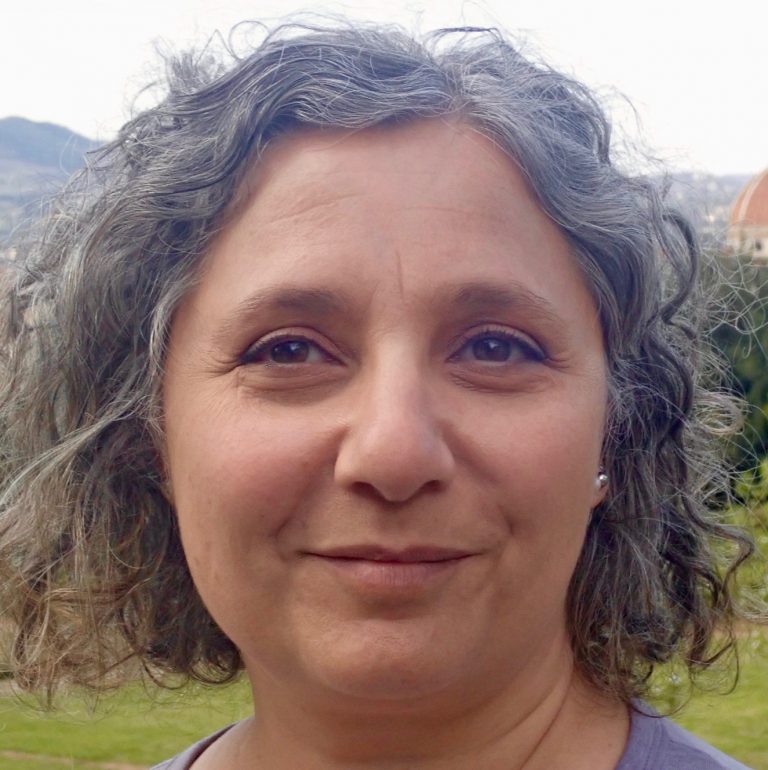
Lidia Lombardi
Associate Professor, University of Cusano, Italy
What is your research area, and why did you choose it?
My research area is energy and environment. In particular, my research interests include: energy recovery from waste and biomass by thermal and biological processes, waste management, CO2 removal processes, Life Cycle Assessment (LCA) and LCA-oriented methodologies for environmental analysis applied to processes, systems and products.
I have always been interested in environment protection. In my research field, the protection of the environment passes through technology and innovation: this is the reason why I developed a passion for these topics.
What has been the most exciting moment in your career?
I would say when I was asked to become one of the associate editors of the main journal in my field: Waste Management.
Have you faced any advantages as a woman in science?
I benefited from the “female quota” in some cases.
Have you faced any disadvantages as a woman in science?
Fortunately, not in particular. However, I still remember one event from several years ago. I proposed myself for a researcher position, and the professor responsible for hiring for that position called me, saying that I was not the appropriate person because I was almost becoming a mother and I could not be the right person to work on pilot plants, etc… I hoped his pilot plant went on fire!
Do you think it is important for women to be involved in science, and if so, why?
I think that it is important that more and more people are involved in science. I think that women are as good as men and men are as good as women in science.
What would you recommend to girls and women considering a career in science?
I would recommend following one’s passion and interests and doing the things one likes. Hard work is required to do things well, but if hard work is supported by passion it can be done!
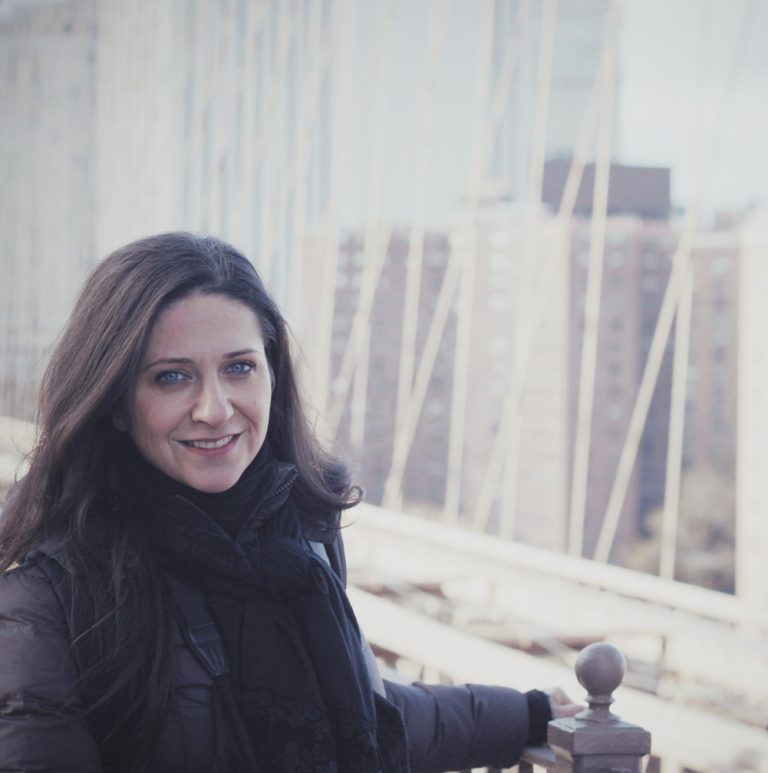
Barbara Mendecka
Associate Professor, University of Cusano, Italy
What is your research area, and why did you choose it?
My name is Barbara Mendecka, and I am an Assistant Professor in Machinery and Energy Systems at the Niccolò Cusano University of Rome.
I had always wanted to be an engineer and enjoyed problem-solving and challenges. Thanks to one of my previous mentors, I discovered that I had a passion for innovative green technologies and energy processes, so I began to develop a highly specific interest in this field.
Now, the research lines of my scientific activity concern the development of components and systems for energy conversion and storage for both mobile and stationary applications and the integration of new technologies with renewable energy sources.
The approach I am applying in my research is based on computer-aided and model-based design up to testing on complete devices, and it is completed by analyses on complex systems and LCA as well as multicriteria approaches.
I am the author of more than 30 papers in international peer-reviewed journals, more than 40 publications at national and international conferences, co-authors of five monographs, and I hold one patent.
What has been the most exciting moment in your career?
I would say there were more exciting moments in my career till now, starting from publishing my first peer-reviewed article, my first conference speech, making the first review for an important journal, having my first scientific responsibility, getting a contract for a researcher position or to get the first research grant.
Have you faced any advantages as a woman in science?
Yes. Fortunately, the percentage of women being acknowledged in the energy sector does seem to be slightly increasing. This can be translated into an increased involvement for women in research to benefit fully from various initiatives or project opportunities aimed at breaking patterns and balancing gender inequality.
One example of such approaches I am personally involved in is the W4RES project dedicated only to women in the market deployment and uptake of Renewable Heating and Cooling.
Have you faced any disadvantages as a woman in science?
During my carrier, I have held positions in different Universities, and fortunately, I have never directly experienced the negative impacts of gender inequality, even if my field of research is man-dominated.
However, my feeling is that there is still an insufficient organisation in terms of social spaces or infrastructure to support pregnant women/young mothers/parents.
Do you think it is important for women to be involved in science, and if so, why?
Yes. Even if gender cannot predetermine being a good scientist, but competence and a strong character can. However, as there is a growing urgency to find innovative solutions, the involvement of women, with their natural skills such as out-of-the-box thinking and creativity, are certainly important!
What would you recommend to girls and women considering a career in science?
Most importantly – do not be afraid of new challenges, especially those driven by a passion or life. Work diligently and with a commitment to developing your competencies. The basis for success is to derive satisfaction from what you do.
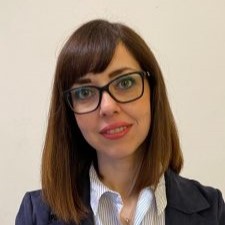
Tamara Menichini
Associate Professor, University of Cusano, Italy
What is your research area, and why did you choose it?
My research area is Business and Management Engineering. The main topics of my research activities are Corporate Sustainability and Corporate Social Responsibility. I focused on these topics from the first day of my research activities when I was a young PhD candidate and maybe before when I was working on my Master’s Thesis. I believe companies are key players in the economic system: they need to be aware of their key role in promoting social well-being without ignoring the responsibilities deriving from this role. The contribution of my research activity is to develop tools to guide the company’s decision-making to put this responsibility into practice.
What has been the most exciting moment in your career?
It is something that happened recently. I have had the opportunity to personally know and shake hands with the scientist who is the father of the theory that has influenced my research activity from the beginning.
Have you faced any advantages as a woman in science?
I don’t think I have had any advantages in my career simply because I was a woman. But if I have had any, I must thank my strong determination to achieve targets… is it a female characteristic?
Have you faced any disadvantages as a woman in science?
The disadvantages I faced, and I still face, are linked to the enormous difficulty of being a worker and a mother at the same time. Working in science absorbs your brain and sometimes your body completely (100%), but when children ask for you (I said children, not the husband), it cannot go beyond 50%. Is it the same for a man? I don’t think so…however a solution exists if your husband gives you support and he loves you, as is in my case.
Do you think it is important for women to be involved in science, and if so, why?
I think a woman should be involved in anything she wants to be involved in, including science. No prejudice should compromise her choices. No social or institutional barriers should affect her freedom to be what she wants to be. Women who are motivated to be involved in science, exactly like men who are motivated to be involved in science, are valuable resources, given that in their respective fields of interest, each one can contribute to improving everyone’s life.
What would you recommend to girls and women considering a career in science?
It forces you every day to face your limits to improve yourself. It is not a high-paying job, it is not a relaxing job. But something is special. Your curiosity that becomes a question, and the question that finds an answer, as well as your idea that becomes a project: it is exciting. And if you also have the possibility to tell your work to today’s students who will be tomorrow’s managers, as is in my case, then you realise that your job is the best job in the world.
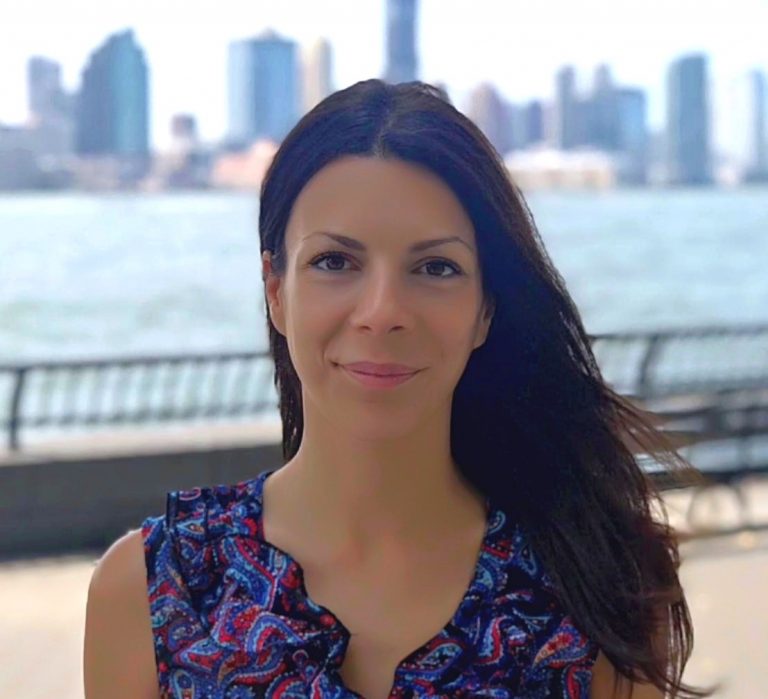
Ilaria Mileti
Assistant Professor, University of Cusano, Italy
What is your research area, and why did you choose it?
My research area includes topics related to mechanical and thermal measurements, as well as measurements applied to experimental biomechanics. These themes find application in the development of wearable devices and vision systems for the analysis of human movement, the development of robotic devices for assistance and training, and the development and characterisation of wearable sensors.
What has been the most exciting moment in your career?
One of the most exciting moments in my career was when we began testing our bi-articular exoskeleton for lower limbs on children with cerebral palsy. It was truly thrilling to see that the device was able to help the children walk and to witness the look of amazement on their faces.
Have you faced any advantages as a woman in science?
Yes, I have been fortunate to work in a research environment that values diversity and inclusion, so I have been able to benefit from some advantages, such as greater attention to the needs of women in the workplace. Also, I have found that my perspective as a woman can be an added value for research work.
Have you faced any disadvantages as a woman in science?
Yes, unfortunately, I have also faced some disadvantages as a woman in science, such as the lack of equal opportunities and the presence of gender stereotypes that can affect the perception of my abilities. However, I have tried to overcome these challenges by working hard and proving my value as a researcher.
Do you think it is important for women to be involved in science, and if so, why?
Absolutely yes. Women’s participation in science is crucial for a diversity of perspectives, scientific progress and social justice. Furthermore, I believe that women can make important contributions to science and that their involvement can inspire and encourage future generations of women to pursue careers in science.
What would you recommend to girls and women considering a career in science?
I would advise them to follow their passion and not be discouraged by gender stereotypes or challenges they may encounter along the way. It is important to seek out mentors and allies who can offer support and advice and to pursue training and job opportunities that value diversity and inclusion. Furthermore, I would encourage women not to be afraid to experiment and explore different areas of science and always to be ready to learn and grow as researchers and as people.
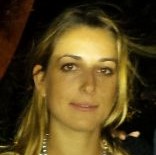
Francesca Nerilli
Assistant Professor, University of Cusano, Italy
What is your research area, and why did you choose it?
My research area is solid and continuum mechanics, and I choose it because the covered topics interest me and fascinated me during my university career.
What has been the most exciting moment in your career?
Two were the most exciting moments in my academic career: 1) when I defended my PhD thesis; 2) when my first article was published in an important journal.
Have you faced any advantages as a woman in science?
No, I did not face any advantages.
Have you faced any disadvantages as a woman in science?
Yes, I faced some disadvantages when I became a mother because my career slowed down.
Do you think it is important for women to be involved in science,
and if so, why?
Yes, it is very important because women have a very strong attitude and sense of duty, which surely is important in pursuing the goals of science.
What would you recommend to girls and women considering a career in science?
I would recommend holding on because our scientific work gives great satisfaction.
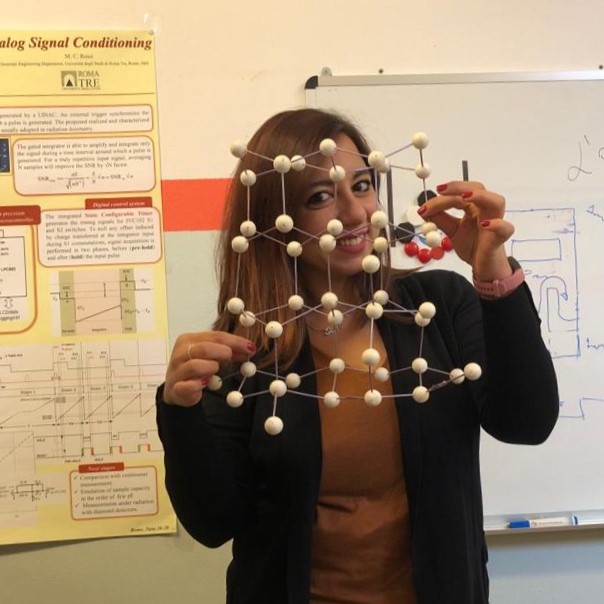
Sara Pettinato
Research fellowship, University of Cusano, Italy
What is your research area, and why did you choose it?
My research area is precision dosimetry for radiotherapy. My research activities range from the fabrication of diamond dosimeters to the design, development and in-the-field test of electronics for the conditioning of the signals generated by the diamond dosimeter. I chose this area of research because I believe it is essential that each of us uses our skills to make a contribution, however small, to the improvement of any technique or process. Especially in a highly challenging field such as the life sciences. What good is progress if it is not applied to improve the lives of those who need it most?
What has been the most exciting moment in your career?
Undoubtedly the defence of my doctoral thesis. I remember the mixture of emotions of that day: from terrible anxiety to the greatest satisfaction!
Have you faced any advantages as a woman in science?
Frankly speaking, no!
Have you faced any disadvantages as a woman in science?
Also, in this case, the answer is no, I have not. I am very lucky to work with a group of people where respect for each other is an unquestionable value, independent of gender.
Do you think it is important for women to be involved in science, and if so, why?
I think everyone should be equally involved in science. It is not a question of gender but of ideas, of commitment, of seriousness. Certainly, women make a better contribution in terms of pragmatism and a more empathetic approach to situations!
What would you recommend to girls and women considering a career in science?
Be determined, girls! Be brave and work hard until you are satisfied with yourself.
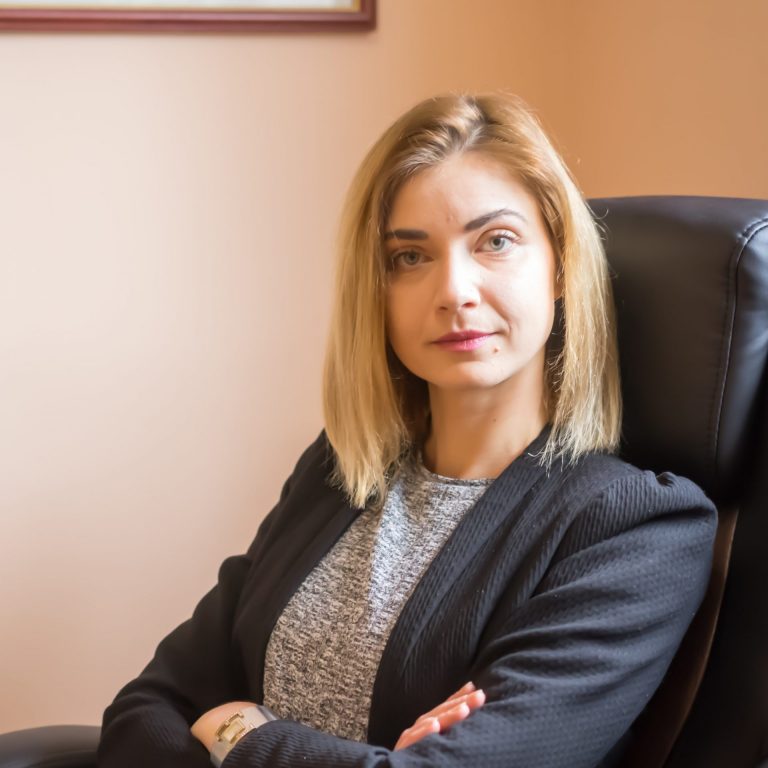
Kaja Prislan Mihelič
PhD, Associate Professor of Security studies at the Faculty of Criminal Justice and Security, University of Maribor
Kaja teaches courses in information security, policing and safety of smart cities. She has been a team member, project leader and coordinator of several research projects, a member of programme committees of national and international conferences, and editorial boards in cybersecurity, policing, and social sciences. She is an elected representative of research organisations and vice-president of the Programme board within the Strategic Research and Innovation Partnership – Smart Cities and Communities, and a full member of Sigma Xi, The Scientific Research Honor Society. In 2018, she received a Danubious Young Scientist Award (given by The Austrian Federal Ministry of Education, Science and Research (BMBWF) and the Institute for the Danube Region and Central Europe (IDM)) and in 2019 Rectors Award for scientific research, artistic and educational work (given by University of Maribor).
What is your research area, and why did you choose it?
During my undergraduate studies in the Criminal Justice and Security field, I became increasingly interested in technological advancements’ societal and security implications. The emergence of digitisation, informatisation, and smart development as trends highlighted parallel security and safety issues and challenges that intrigued me. As a result, my research area centres around information security management, encompassing topics related to behavioural and crime aspects, as well as policing, particularly smart policing and technological advancements in security. My interest in this area stems from a desire to explore the intersection of technology and security and to understand how technological advancements can be harnessed to enhance security measures while mitigating potential risks and challenges.
What has been the most exciting moment in your career?
Throughout my career, I have found every promotion, invitation to research collaboration, and recognition from academic colleagues to be exciting and validating moments. They confirm that my work has had observable implications and contributed to my overall sense of accomplishment within the field. However, there have been several particularly memorable moments that have deepened my passion for the work I do. For instance, I can still recall the excitement and thrill that I experienced upon receiving my first research project, as well as the notification of being awarded the Danubius Young Scientist Award. These milestones have not only bolstered my dedication as a researcher but have also motivated me to continue pursuing innovative work in my field.
Have you faced any advantages as a woman in science?
In my experience, gender has played a minimal role in determining my position and opportunities within the scientific community. However, I have observed that gender has often served as a conversation starter and subject of discussion within social circles and gatherings of fellow scientists. These occasions provide valuable opportunities for female scientists to exchange experiences and offer encouragement to one another. Additionally, as initiatives focused on supporting women in science gain momentum, I have received invitations to share my experiences and perspectives on being a female researcher. While I have not experienced any direct advantages based solely on my gender, I recognise the importance of ongoing conversations and initiatives aimed at promoting gender equity and inclusivity within the scientific field.
Have you faced any disadvantages as a woman in science?
I have encountered various gender stereotypical jokes and comments, primarily during my career’s early stages. The majority of these instances did not feel intentionally malicious, but I felt I was not taken seriously. However, as my career progressed, I experienced no visible discrimination or bias based on my gender. I now feel that, more than ever, I work within an academic environment that is both equitable and supportive of women. Overall, I find that the scientific community in my field is characterised by an ethos of treating individuals equally and with the same level of respect, regardless of gender. Nonetheless, more must be done to strengthen young parents’ possibilities to coordinate family and professional life easier.
Do you think it is important for women to be involved in science, and if so, why?
The involvement of anyone who can contribute to science, not related to gender, ethnicity or age, is of paramount importance for the scientific community and society as a whole. Specifically, gender diversity fosters innovation, creativity and healthy work culture in all professional fields, including science. Collaborative brainstorming and the exchange of diverse ideas between people from different backgrounds and perspectives is the key to unlocking new solutions to complex scientific problems. In my experience, women have played an indispensable role in scientific research, serving as a vital balancing factor. The progress and solutions achieved through scientific inquiry are meant to benefit everyone, and as such, it is essential that women are included and encouraged to participate to their fullest potential.
What would you recommend to girls and women considering a career in science?
To young girls and women contemplating a career in science: If you possess the desire and determination to pursue a career in science, you undoubtedly possess the capacity to succeed. Do not hesitate to ask questions, share even the most unconventional ideas, and fearlessly approach challenges and setbacks, as they are an integral part of the scientific process. But you must strive to surround yourself with individuals who offer constructive advice and are emotionally and psychologically supportive. Additionally, developing the ability to leverage critiques and be self-reflective can prove invaluable to your growth and success as a scientist.
For those already established within the scientific community: It is essential that we prioritise recognising and supporting one another. Given the high-pressure environment within which we operate, characterised by constant evaluation and criticism, fostering an environment of mutual encouragement can promote mental and emotional well-being, as well as spur collective scientific progress.
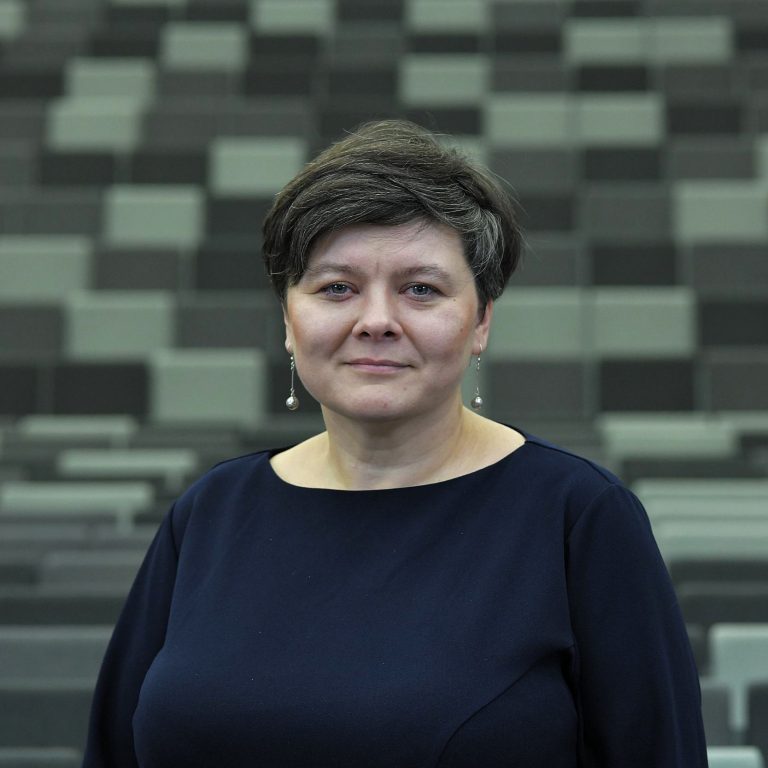
Simona Ramanauskaitė
PhD, Professor, Department of Information Technology, Faculty of Fundamental Sciences, VILNIUS TECH, Lithuania
Simona Ramanauskaitė is a professor at Vilnius Gediminas Technical University (VILNIUS TECH), Department of Information Technology. She works primarily in Computer Science on various topics of cybersecurity, artificial intelligence and e-learning. Simona has authored or co-authored more than 50 scientific papers, led several national research projects and currently is an executive administrator in the international EU-funded Digital Europe Programme project MERIT (Pro. no. 101083531).
What is your research area, and why did you choose it?
Since my childhood, I was in love with maths. During my early school years, not only I enjoyed solving mathematical equations, but also saw maths as a tool to overcome real-life challenges.
In the senior grades, math exercises became more theoretical rather than practical. I was still interested in it, but it was not that “fun” anymore. Coding lessons at school introduced me to situations where computer science could solve problems that maths couldn’t. As a result, I began to focus on computer science studies.
I am still driven by the vast scope of computer science – from creativity while solving problems to the constant desire for improvement and creation. It can accelerate the growth of individuals, businesses and even the global economy. Therefore, now I am a professor in Computer Science, interested in many different areas but mostly concentrating on cybersecurity, e-learning and the application of artificial intelligence.
What has been the most exciting moment in your career?
The career of a researcher (at least in computer science) can be very dynamic. Computer science is ever-changing, so you can constantly expect something brand-new and amazing. The most exciting part of my work is being excited about different things all the time. The thrill of discovering original ideas, having convincing discussions with researchers, seeing students’ ability to apply gained knowledge to innovative solutions is replaced by something more exciting, of a larger scale, a more specific niche, etc.
There can be multiple factors motivating you to join the researchers’ community and it might be different for everyone. The motivations behind my research are creating novel knowledge in areas I see relevant; working with open-minded and creative colleagues; contributing to global problem-solving with a worldwide scientific community; sharing my experience and knowledge with students and young researchers.
Have you faced any advantages as a woman in science?
From my point of view, gender does not define who we are, what we can do, etc. However, diversity brings a lot of advantages when it comes to problem-solving. I cannot say for sure if it is affected by gender or just my personality, but it is enjoyable to work with a male-dominated team of researchers and be different from them. This is because I can discover various aspects of the problem, novel ideas and solutions, etc. There is a certain thrill in meeting something or someone unfamiliar and seeing that their point of view or their opinion is different from your own.
Have you faced any disadvantages as a woman in science?
In a world where gender equality and diversity politics are broadly promoted, I sometimes wonder whether I get invited to join upcoming projects due to the diversity requirements or my professional qualifications. From one perspective, it is an advantage to be invited just because most participants are men. On the other hand, for me, it adds additional stress and makes me doubt my professional skills.
Do you think it is important for women to be involved in science, and if so, why?
I believe science is the engine that brings knowledge, technologies, and solutions to our problems. This mechanism works when a wide range of related parts are involved. How could we know about different aspects of the problems if there were no women in science who would represent this part of society? In addition to gender, it applies to language, nationality, age, religion, and other properties of society as well. We are diverse in our daily lives, the same diversity could benefit science as well.
What would you recommend to girls and women considering a career in science?
Some girls and women need an example of a woman in science or another field to look up to. However, this can also result in stopping individual growth. To me, role models are important, but I see them not as something to follow, but as something to overtake. Then there is no difference in gender or other personal characteristics – everyone has something good to offer. We should all strive to improve, grow in a professional and personal sense. While there is no one to follow, try to be a better version of yourself.
If you are considering a career in science, be prepared for criticism. Do not take it personally because it can help you find new insights. Do not be ashamed to ask questions and clarify any uncertainty. It is the goal of all research to present the results as clearly as possible.
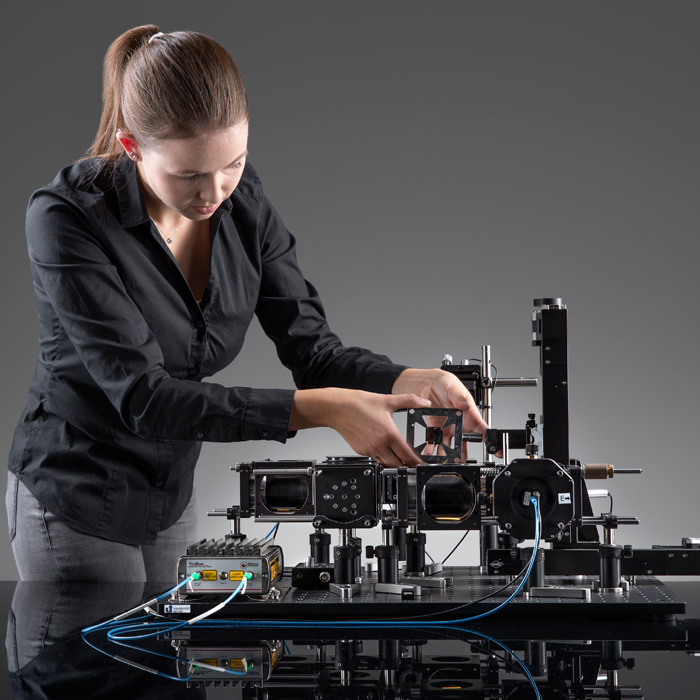
Merle Richter
PhD student, University of Siegen, Germany.
I was born in 1994 in the south of Germany and raised in Siegen-Wittgenstein. After primary school, I went to Gymnasium Wilnsdorf, where my curiosity for the sciences (especially chemistry and biology) was supported and nourished. I was an intern in the chemistry department of the University of Siegen and decided to study chemistry on the spot. During my studies, I sequentially had several mini jobs. One of them was a student job in the group of Prof. Dr. Haring Bolívar (Institute of High Frequency and Quantum Electronics, University of Siegen) who offered me a PhD position after I graduated with my master´s degree. Although initially, I had wanted to specialize in organic chemistry all along, I decided to leave the classical path for chemists and turned my attention to THz biosensing. My highlights during my PhD so far include giving an invited talk at the Elsevier Biosensing Conference 2021 and organising the 12th Terahertz Young Scientists Meeting 2022 in Delft.
What is your research area, and why did you choose it?
Terahertz biosensing is a field of research that is relatively young w,hich means there are plenty of things left for me to discover and understand. At the same time, it is a highly interdisciplinary field. Accordingly, I, as a chemist, work side by side with electrical engineers, biochemists, physicists and life scientists. It is extraordinarily fascinating how all these disciplines sometimes look at one thing and seem to see something entirely different. Also, it feels encouraging to go home at the end of the day and know that perhaps someday my work might, for example, help to diagnose diseases faster or to choose the right individual treatment for a certain patient.
What has been the most exciting moment in your career?
The most rewarding moments for me are always when measurement results start to make sense and a bigger picture forms from smaller pieces like a jigsaw. Besides that, the scientific discourse can be very exciting after a presentation of your results to the scientific community.
Have you faced any advantages as a woman in science?
Strictly speaking, I would not call this an advantage, but I observed that people outside of my science bubble seem to be rather intrigued and sometimes even a little admiring when I talk about my work.
Have you faced any disadvantages as a woman in science?
Again, I would not actually classify this as a disadvantage, but the likelihood that some tasks that are part of working in public service will be assigned to you is higher if you are a woman. These tasks are frequently not related to research but rather representative, political, etc. However, this can be viewed as an opportunity as much as it can occasionally feel like a burden.
Do you think it is important for women to be involved in science, and if so, why?
In my opinion, science, as well as other aspects of humankind and society, benefit strongly from as many points of view as possible. Many of the most interesting insights (not all related to my research) I have gained in conversations with people from completely different backgrounds and, therefore, with an equally different perspective on a certain topic. Conclusively I think that the involvement of a pool of people as diverse as possible is desirable.
What would you recommend to girls and women considering a career in science?
First: find and choose something that you are passionate about. In my experience, most scientific education programs require hard work, and if your only motivation is to earn money, you will probably have a very hard time.
Second: seek guidance or consulting if you feel the need for it but do not let others decide for you or tell you what you can or cannot do.
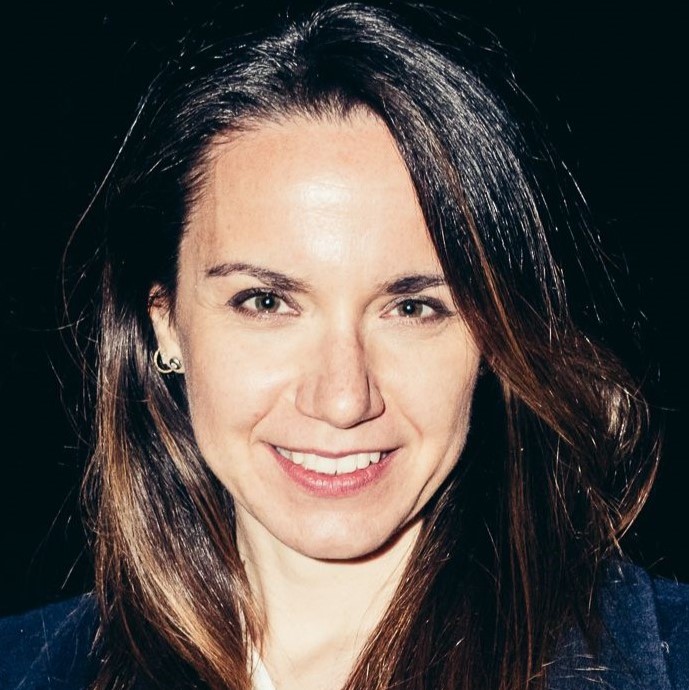
Francesca Roscini
Assistant Professor, University of Cusano, Italy
What is your research area, and why did you choose it?
Structural engineering is my research area. The curiosity about buildings and civil infrastructures has pushed me to focus into this scientific topic. Then, the attention has moved in studying innovative solutions for the maintenance of existing structures over the time and in particular, for the cultural heritage preservation, due to their greatest need after the most recent earthquake sequences registered in the Central Italy. Finally, every historical period could be also recognized through constructions: for this reason, it is worth to guarantee the best knowledge to next generations.
What has been the most exciting moment in your career?
To be honest, it would not be immediately reporting the most exciting moment in my career. For instance, it should be easy to identify each milestone as the ‘best moment ever’. However, I am strongly convinced that in everyday discovery, it is possible observing and being grateful for this work, which could be considered the most exciting in the world. In my experience, improving from mistakes has generated a gradual increase in awareness. Being patient and practising many ‘step by step’ attempts could be the result of a clear motivation that has developed even more, observing my research progress.
Have you faced any advantages as a woman in science?
It becomes difficult to answer this question. Personally speaking, I would affirm that I have never obtained any advantage as a woman in science. I am lucky to find people that have believed in my skills and in my scientific potential, no gender-related.
Have you faced any disadvantages as a woman in science?
Sometimes it has happened when the work environment is male prevalent. In that circumstance, it is strictly necessary that woman researchers demonstrate their charisma along with their scientific idea, despite of their goodness! However, it also depends on the particular person you face with.
Do you think it is important for women to be involved in science, and if so, why?
I could assert that women in science are fundamental. The main reasons could be connected to their unique multitasking capacity. Likewise, their logical process has helped in solution optimisation. Women are also talented in long-term vision. In addition, they can pass through the worst frustrating moments thanks to their natural resilience, motivated by passion and devotion to what they love to do. This allows them to achieve the most ambitious objectives. Moreover, I am also convinced that a work environment characterised by men and women all together improves everyone’s knowledge and from these collaborations could be obtained the best results. In particular, establishing good management in terms of communication and the scientific program is fundamental to enriching the best objectives.
What would you recommend to girls and women considering a career in science?
Nothing is impossible when you follow your dreams. Never forget to combine as much as possible, work and personal life, in particular in a demanding period of sacrifices when it seems that everything is falling down. Are these moments that you can find your way and the best help ever you can receive… unexpected as well!
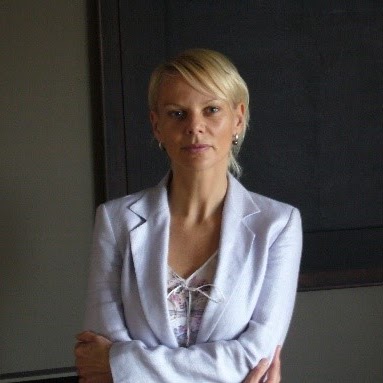
Aelita Skaržauskienė
PhD, Professor, Chief Research Fellow, Department of Entertainment industries, Vilnius Tech university, Lithuania
Prof. A. Skaržauskienė is a senior researcher at Vilnius Gediminas Technical University (Lithuania). Her main research interests are digital co-creation, collective intelligence, decentralised Web and decentralised governance. Currently, she is leading the Lithuanian team in the H2020 project “Establishing Citizen Science Hubs in European Research Performing and Funding Organisations to drive institutional change and ground Responsible Research and Innovation in society.”
Together with her research team, Aelita has developed a Collective Intelligence Monitoring Technique for the evaluation of networked platforms (www.collective-intelligence.lt/en), she works in collaboration with the MIT Centre of Collective Intelligence.
She is engaged in Vilnius Blockchain centre and bitfwd community activities as social technologies advisor.
What is your research area, and why did you choose it?
My research topic is collective intelligence. Collective intelligence can be defined as the general ability of a group to perform a wide variety of tasks or engage the community in collectively building a new solution. The essential difference between collective and individual intelligence is that social interaction is crucial for the formation of collective intelligence. Collective intelligence has existed since human evolution. Families, armies, organisations and states occasionally acted and made decisions collectively. In recent years, following the emergence of the Internet, collective intelligence had a new boost. Connected by the Internet, groups of people collectively create new wide-scale and high-quality intellectual products practically without any centralised control. Scientific societies claim that, in general, a group of human beings process information and solve problems better than individuals. The researchers working on the topic seek to understand the phenomenon of collective intelligence and to use communication technologies to create new forms of collective intelligence in a network society.
What has been the most exciting moment in your career?
The first funding for my research group from the Research Council of Lithuania for a very innovative project “Social Technologies for Developing Collective Intelligence in Social Networks”. It was the opportunity to prove myself as a scientist and to believe that I can make a difference with my knowledge in society. After implementing this project, my scientific career expanded, I presented my research work at different international conferences and started a collaboration with the MIT Center for Collective Intelligence in Boston.
Have you faced any advantages as a woman in science?
There are many women in science, especially in social sciences, to be honest, I met more women than men in my scientific environment. I am happy to work with women because they are responsible, active and efficient. I believe that efficiency is the skill they have acquired while dealing with family, kids and household issues. Many of my PhD students even finished their PhD thesis by being pregnant or during maternity leave. It’s amazing how women become more effective in challenging situations.
Have you faced any disadvantages as a woman in science?
The only disadvantage I see as a woman at university is a common practice when the head position, like rector or head of the department, is usually given to a man and the vice-rector or vice-dean position is given to a woman who is actually doing the whole work. However, this situation is changing for the better, and we already have two female university rectors in Lithuania.
Do you think it is important for women to be involved in science, and if so, why?
Answering this question, I want to mention the research of Woolley et al. (2010), which showed that the collective intelligence of the group correlates with the percentage of women in the group. It means that women make the group smarter! This phenomenon is explained by differences in social sensitivity, which is very important to group performance. Many tests show that women tend to score higher in social sensitivity than men. Therefore, for scientists dealing with social problems, it`s very important to have people with social intelligence, whether they are men or women.
What would you recommend to girls and women considering a career in science?
I would say, “Go for it”! It’s an exciting way, full of new discoveries, people, countries and ideas. You will have flexibility with your working hours but also full responsibility for your results. Sometimes it will require teamwork, sometimes you will be alone with your research, but I think it is the best possible career for a woman – to be well educated, intelligent and make the world a better place to live.
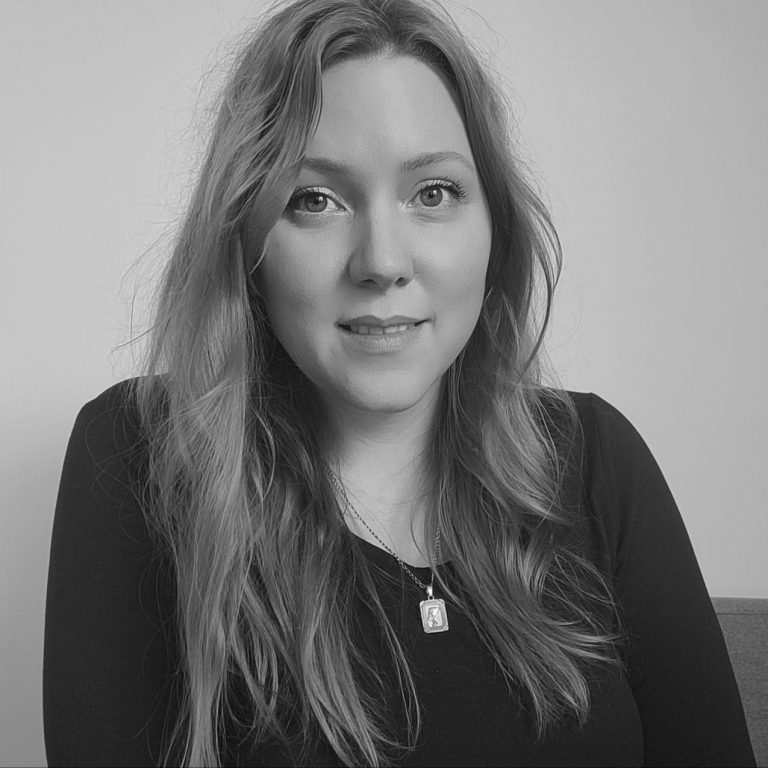
Daniela Elisabeth Ströckl
Daniela has been working at the Carinthia University of Applied Sciences in the field of medical technology since 2015, mainly in the research area of eHealth / health informatics. She mainly works as a professor (researcher and lecturer) for medical informatics and digitalization in the health and social sector at the faculties of Engineering & IT and Health & Social Sciences.
Since 2016, she is a member of the Institute for Applied Research on Ageing (IARA) in the department of Health and Assistive Technologies. Since early 2022 she is a member of the transdisciplinary working group “Climate change and Health” at CUAS – mainly responsible for the digitization aspects and green IT.
Her research thematically focuses on the design, realization and evaluation of innovative and assistive HCIs in the field of preventive health for people of all ages, as well as applications in the field of digitalization offensive in health and social care. Special attention is given to UX as well as digital accessibility, the use and application of innovative SOTA interaction technologies and interface technologies. Also of interest in the area of evaluation is the use of HCIs from which conclusions are drawn about the users themselves (behavior-change models).
What is your research area, and why did you choose it?
My research area consists of two sub-areas. First is the nexus climate change – health – digitalization or as I call it “green eHealth”. Here, the aim is to make the connections visible and to use digitization in such a way that it serves processes such as climate adaptation and the associated health aspects without itself being used in an overboarding manner and thus causing more harm than good.
And secondly, it is User Experience and Software Engineering, and here especially the development of human-system interfaces that are usable by as many people as possible. I focus on different aspects of digital accessibility, which means different interaction and participation possibilities no matter if the user has any limitations or not; be it different graphical interfaces, interactive possibilities from the gamification area or alternative control possibilities beyond the classical GUI.
Both focal points can be combined wonderfully, because without a usable digital solution, content cannot be brought to people in a profitable way.
Why did I choose this focus? First of all, I have a background in arts and crafts and have been an avid computer gamer myself for years, which is why the development and conceptualization of human-system interfaces is very close to me and inspires me. For me, computer science and programming itself are the ambivalent tools that combines clear logic with creative spirit and through which one can support and reach people. The focus on climate change-health-digitization is not something I actively chose, but rather something that came to me over time, because dealing with this topic is not only important, but necessary. If, like me, you come from a medical informatics background and basically want to support people in their health, and then you see what climate change is doing to people, especially psychologically but of course also physically, then it would be a shame to look the other way. If I have the opportunity to support people with digital or partially digital solutions for anxiety, depression or other serious problems, then I do it not because I have to, but because I enjoy supporting people, especially with mental health problems.
What has been the most exciting moment in your career?
There have been quite a few that I wouldn’t want to miss, and the beauty of my work is that there is not only one great moment, but always new exciting, emotional and challenging moments. Be it my own graduation ceremony or graduation ceremonies of my students, great projects in an interdisciplinary context or exciting discussions or business trips with colleagues from all over the world.
But if I have to pick out a moment, then I would opt for a moment that seems small for many, away from the big events. After a course, a student came to me and asked if I had a few minutes left for a conversation. I agreed, although I didn’t know exactly what it was about – but I thought that she would still have questions about an exercise or the subject matter. I was wrong. The student thanked me for the great lessons and told me that I managed to motivate and inspire her, even if the course is complex and at times difficult for her. She is proud of me and that I am her lecturer, because until recently she didn’t know anything about what I do besides teaching. She browsed my LinkedIn profile and proudly showed her family the posts there, and they now understand what you do in medical informatics – which she might be able to do one day. She only wanted to tell me this personally – nothing more. Often it is precisely these moments that show you that you are doing the right thing and have landed in the right place. This is not about creeping, but about honest gratitude, which has been openly expressed.
Have you faced any advantages as a woman in science?
This question is actually difficult for me to answer, because you can never say one hundred percent whether something happens because you are a woman, or because you are the way you are as a whole. So far, at least, I would not have consciously used my gender for an advantage, as I would not consider this a successful move for any person.
As a woman, I am pragmatic, do not discuss things at the beginning, but first try things out practically and then analyze whether it was good or bad, I enjoy my work and therefore laugh a lot and like to show my frustration and joy openly. Maybe the latter would not fit into the description of my male colleagues, as many are more of the “poker face” type – that could be my advantage. Everyone who works with me knows where they stand with me and whether we would harmonize as a team or not, without a double bottom or mumbling behind closed doors. Furthermore, I am dreamy and enthusiastic, which could possibly also be characteristics that would rather be attributed to a woman. I find both qualities essential in research, as this is the only way to create new ideas and concepts.
Whether I am right with my assignment to a gender, I dare to doubt. In general, I think it’s not about gender, but about an open, curious and enthusiastic character. Because it doesn’t matter who it is always a decisive advantage.
Have you faced any disadvantages as a woman in science?
Yes, as a young academic, you are sadly often confronted with the fact that older colleagues, especially male colleagues, do not think they have to take you seriously. Here, the argument is often preceded by experience, but I do not accept that in most cases. I move in a very young field of research and there are hardly any people with decades of experience, at least not in my environment, and therefore I do not let my expertise be talked down here. Furthermore, I probably do not correspond to the classic image of an academic, because I have visible tattoos and sometimes colorful hair and sometimes wear a band shirt or a hoodie. For me, however, intelligence and expertise have nothing to do with age, clothing style or academic titles, but with performance, enthusiasm and the ability to inspire others. That’s why I meet other people openly at first, but I don’t shy away from discussion if I feel disadvantaged because of gender, age or other inappropriate parameters.
Do you think it is important for women to be involved in science, and if so, why?
Definitely, because above all the technical sciences need more diversity and must become more colorful in order to exploit the full potential in the long term, because every gender has its advantages and disadvantages and only together can we achieve great things. But we need role models in the technical sciences who take away young women’s shyness and show that it is not about programming in the dark basement, but that we actively work with people and that our work not only has added value in general but also a meaning for you personally. Often young women are looking for exactly such activities, but do not see that, for example, the profession of computer scientist or research in computer science can offer exactly that. That is why role models are needed who are also appealing to children and young people. These role models must not only be technically good, but also be able to pick up the young women, exactly where they are in life. It is of little use to present great projects in the Matura classes and to say what you have achieved at the universities, honestly it is simply too late. We have to start earlier and show how you can create great things yourself with simple means – and not from the top down, but together with the young people. Using social media or online games is cool, but developing them yourself is actually much cooler, and if the whole thing has a deeper meaning without being boring, then it’s not only cool, but amazing. You have to show that. Young women nowadays rightly want more from life, and I understand that only too well. Technical professions and research can enable you to do just that – good earnings, great creative people-oriented work, you can travel the world and help and above all, you can be exactly what women want to be – women with all corners and edges and a lot of empathy.
What would you recommend to girls and women considering a career in science?
Be brave and think outside the box, don’t be discouraged by bad grades, boring teachers, and negative friends. You can regret decisions and you don’t need a straight CV. Let yourself be inspired and look for the right role models. And a scientific career doesn’t mean you can do things like beauty, cooking, sports, etc. on the contrary, science needs different characters with different influences, backgrounds and opinions.
Even as a teenager, I was at the point where I didn’t know what I wanted to be and where I thought of classic women’s professions. Without wanting to talk badly about these professions, but in retrospect I have to say about my luck, I could hardly decide at that time and listened to my gut feeling and let it come to me. And it came despite less outstanding math grades as it should come and I am now a PhD computer scientist, and damn proud of it.
And for all those who have started a technical degree and think in the first semesters that they will never make it and it is all bland, I would like to tell them one thing: at the beginning we all felt the same way or at least most of us. Imagine you can’t speak Japanese and have to live in Japan overnight. It gets pretty lonely and boring at the beginning, but if you know the language and communicate and make friends, then you probably celebrate the best parties of your life. And that is exactly how it is in the technical sciences.
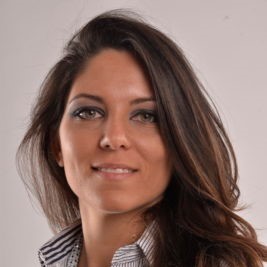
Laura Tribioli
Associate Professor, University of Cusano, Italy
What is your research area, and why did you choose it?
My research area deals with thermodynamic systems analysis, model-based control design and energy management control and optimisation both for vehicular and stationary applications. I chose these topics as they perfectly combine my primary interest in energy systems with the environmental sustainability that I am particularly committed to.
What has been the most exciting moment in your career?
I think that it was when I got the qualification as Associate Professor because it was a moment that I lived as the first real milestone achieved in my career.
Have you faced any advantages as a woman in science?
No, I do not feel like I faced any advantages. I am happy to say that I have always been treated like any other male colleague of mine.
Have you faced any disadvantages as a woman in science?
Yes, I am facing some disadvantages now that I have to take care of my little boy since it is really difficult to balance family and work, but I should say that the problem is more related to being “a woman in career” rather than being “a woman in science”.
Do you think it is important for women to be involved in science, and if so, why?
I think that women are important for science, as they basically look at problems differently than men typically do, having different needs and a different approach to life, but most of all, I think that science is important for women, as it can help them to really emancipate from what is historically perceived as appropriate for their gender.
What would you recommend to girls and women considering a career in science?
I would recommend them to be committed and dedicated.
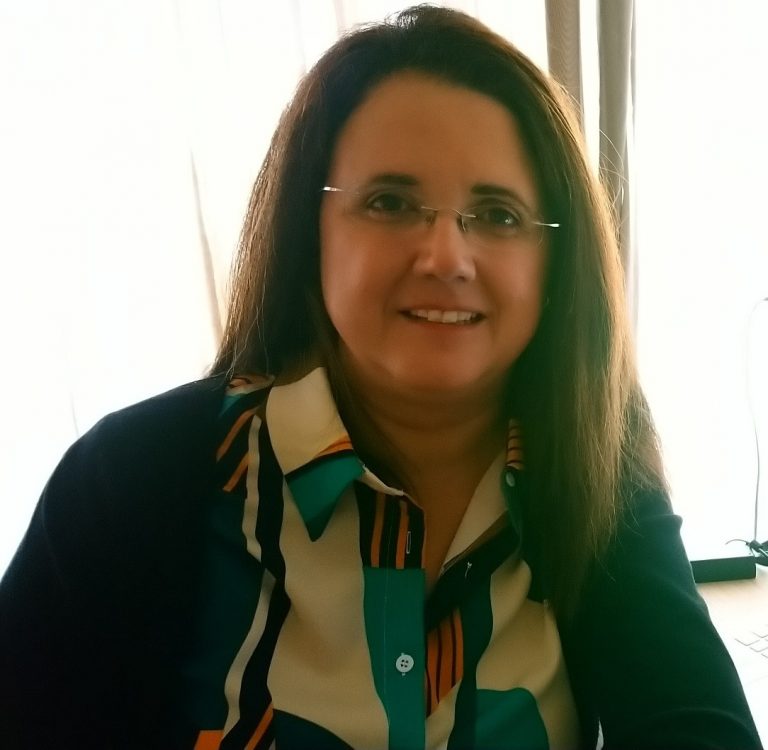
Dimitra Vernardou
Assistant Professor, Hellenic Mediterranean University, Greece
What is your research area, and why did you choose it?
I am leading the Cutting-Edge Materials for Electrical Energy Storage and Efficiency Group under the umbrella of Center of Materials Technology and Photonics in HMU, which is specialized on the growth and optimization of battery materials through reliable, controllable and high throughput deposition processes.
The answer is simple. Curiosity and interest regarding the creative aspect of depositing and designing new materials depending on the application.
What has been the most exciting moment in your career?
The most exciting moment in my career is not only one. On the one side, it is related to solving a problem with regard to the growth of cathode/anode for potential utilization in Mg2+ and Zn2+ batteries, and the deposition of sustainable electrodes at temperatures as low as 65 oC. On the other side, it is correlated with the creative thinking in students to develop their possibilities and explore their career spot in energy storage.
Have you faced any advantages as a woman in science?
I did not face advantages as a woman in science. Unfortunately, the challenges prevail and the self-motivation keeps me to cope with any difficulties.
Have you faced any disadvantages as a woman in science?
Yes, but the nice thing is that my blessings are more. In that way, I am always looking and trying ways to give back to my students through sharing the materials research related with battery knowledge in my teaching.
Do you think it is important for women to be involved in science, and if so, why?
Both women and men are required in science fields to promote diverse perspectives and breakdown stereotypes. I believe this is the only way for an innovative and prosperous future for all.
What would you recommend to girls and women considering a career in science?
For girls and women, who want to get involved in science, innovation, creativity and curiosity are the keywords to go ahead. It is very important to find a good mentor and collaborations that makes them feel good. Aim high and surround themselves with colleagues, who positively challenge them.
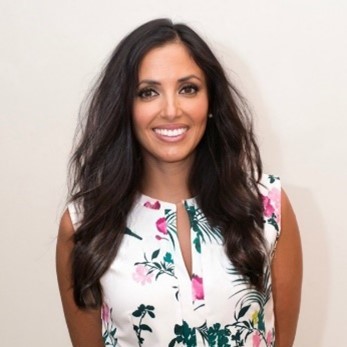
Maria Zucconi
Assistant Professor, University of Cusano, Italy
What is your research area, and why did you choose it?
My research area falls in the field of structural engineering. Specifically, I deal with earthquake engineers and risk and vulnerability assessments of civil structures. I have been involved in this field since my master’s thesis, during which I began a collaboration with the National Department of Civil Protection that continues to date. Within this collaboration, I was involved in the survey filed after the most recent Italian earthquakes. This led me to see the severe construction deficiencies of the Italian building stock, and I desire to contribute innovatively to this research sector.
What has been the most exciting moment in your career?
When I reached the Italian National Scientific Qualification (ASN) as Associate Professor because it represents a significant recognition of my work.
Have you faced any advantages as a woman in science?
No, I haven’t.
Have you faced any disadvantages as a woman in science?
When I was a student at university, I had some male chauvinist professors. Moreover, sometimes physical appearances became predominant in intellectual capacity.
Do you think it is important for women to be involved in science, and if so, why?
Yes, it is important for women to be involved in science, like for men. Women must have the same opportunities as men. Moreover, women have a sensibility and intuitiveness toward specific themes that men often lack.
What would you recommend to girls and women considering a career in science?
To be themselves, to always follow their personality attitudes, to not want to look like a man, but to enhance their own qualities.
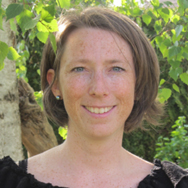
Caroline West
Professor, University of Orléans, France.
What is your research area, and why did you choose it?
I am an analytical chemist. Initially, I was attracted by forensics and archeometry because it looked really cool. However, as job positions in this field are scarce, I moved to more fundamental research in separation science. In the recent years, I have mostly focused on applications for the pharmaceutical industry and on natural products.
What has been the most exciting moment in your career?
The best moments are always the achievements of students. For instance, when you have guided a PhD student during three years, and they finally defend their work in front of a jury, showing all the knowledge and experience they have gained, making them a world expert in their field, this is always a stirring moment. On a more personal side, I was quite proud to be cited several times as one of the most influential scientists in the field by the journal “The Analytical Scientist”.
Have you faced any advantages as a woman in science?
No.
Have you faced any disadvantages as a woman in science?
I have sometimes met male scientists who believe they know better, even on topics that were relative to my own speciality and not to theirs, so I have suffered some unrequired mansplaining. Fortunately, this is not so frequent and most people in the field are equally respectful to male and female scientists, as they respect knowledge and experience more than any particular gender.
Do you think it is important for women to be involved in science, and if so, why?
Yes, I believe that women must involve in science because they are not less talented than men, so why should they restrain? Why would humanity not benefit of half of the brains in this world?
What would you recommend to girls and women considering a career in science?
Having both a satisfactory job and managing family life is possible, but you need help: make sure you have the support of your partner, that he/she accepts that your professional interests are not less important than his/hers.
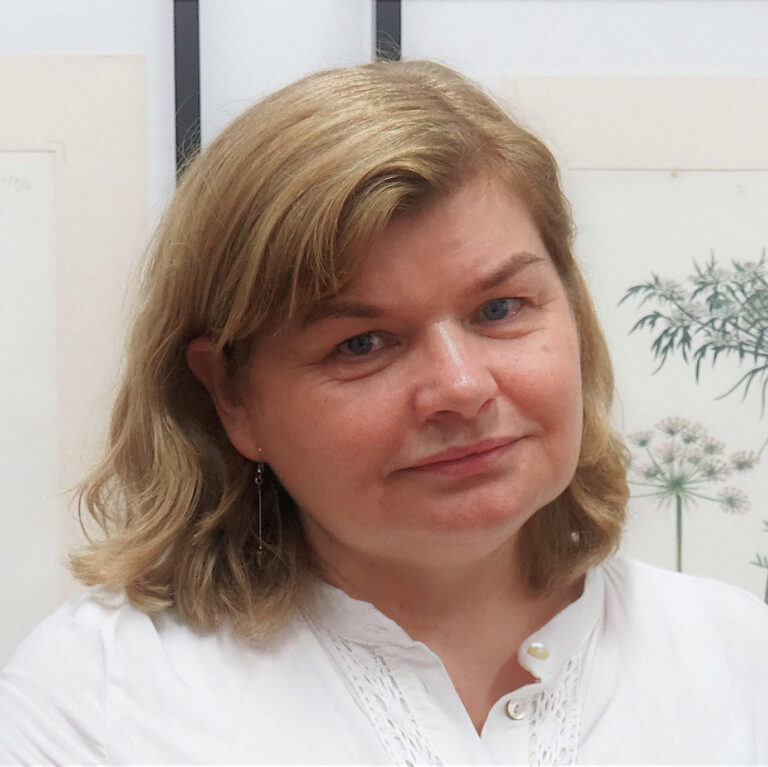
Anna Jarosz-Wilkołazka
Professor, Maria Curie-Sklodowska University, Lublin, Poland
Anna Jarosz-Wilkołazka – biochemist, dealing with the fascinating world of fungal and bacterial enzymes, bio-nano-machines that can find application in biotechnological processes. She conducts her research in interdisciplinary teams, cooperates with leading centres in Poland and abroad, and is the leader of several national research projects. She has completed numerous scientific internships in Germany, Sweden, the UK, and the USA. Member of the team of experts reviewing national (NCN, NCBiR, FNP) and international (Horizon MSCA, NAWA, French National Research Agency) scientific projects, reviewer of more than 200 scientific articles. Populariser of science taking part in numerous endeavours, which she also initiated (Touring Science Festival, Biochemical Competition, Night of Biologists, Science Picnic). Member of the Polish Biochemical Society and the international group Oxizymes.
What is your research area, and why did you choose it?
My research area is biocatalysis and ranges from the use of single enzymes to microbial whole-cell processes for biotransformation. I choose this area of research because I believe that enzymes and biocatalytic processes can tackle some of the biggest challenges in the world. Enzymes are fascinating and do many things that people find useful, from blood glucose levels to taking stains off clothes.
What has been the most exciting moment in your career?
The defence of my doctoral thesis was undoubtedly one of the most important moments in my scientific career. I felt that I had become a scientist who can change the world and who has the power to do this. Of course, I can change this micro-world around me. From that day I remember the mixture of emotions – from the disquiet to the greatest feeling of satisfaction. Also working with an international team in my first scholarship abroad at the University of Dundee in Scotland team was a great experience. There, I could do all the experiments on my own and I could participate in scientific discussions during which others heard what I had to say. I was listened to.
Have you faced any advantages as a woman in science?
It is difficult to answer this question. I have never obtained any advantage as a woman in science. My environment is predominantly made up of female scientists, and from my personal observations, we are judged by our skills and scientific potential, not according to gender. However, I noticed that the fact that I am a woman makes it easier for me to be the director of a large institute. I can see the issues that are important to all the institute’s employees, and I can go into every little place in our building. This might be due to my character and not to the fact that I am a woman.
Have you faced any disadvantages as a woman in science?
Again, this question is quite difficult. As a scientist, I have not felt any different treatment because of the fact that I am a woman. That being said at some point in my scientific work, it was quite difficult for me to balance scientific work with being a young mother. I had to accept that I couldn’t be 100% scientist and 100% mom for a while. My family helped me a lot and thanks to them I never stopped being a passionate scientist!
Do you think it is important for women to be involved in science, and if so, why?
To answer this question, I would like to talk about Maria Skłodowska-Curie, an extremely hard-working scientist who did not give up and was full of courage. As a result, she won the Nobel Prize twice in a world dominated by men. Spectacular discoveries in the world of science happen, but you definitely have to be prepared for them to avoid missing one. I think women look at problems differently than men. They have different needs and approaches to life, which is why they are important in science. On the other hand, it should be emphasized that science is important for women. It can aid them in becoming people who transform the world in a gentle and peaceful way.
What would you recommend to girls and women considering a career in science?
It is essential to be brave and a little crazy. Don’t be discouraged by failures or boring college classes. It would be best to think outside the box but look for inspiration, not always in your immediate environment. Don’t repeat your promoter’s experiments but look for suitable models. Listen to your gut feeling, and don’t try to be outstanding in everything.
